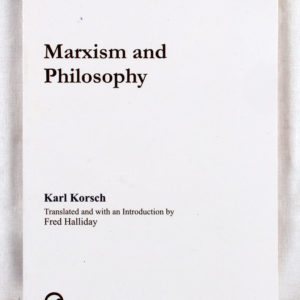I Dream Like You: Stories We Walk Past | Saker Mistri
₨ 632.00
Their dreams were not too different from ours. Each one achieved success—school principal, poet, police constable, chartered accountant and social entrepreneur. But the road was long, the hurdles seemingly unpassable. The real-life narratives of the twenty-five young writers in this book reveal the bridges they built between the slum communities they were born in and the world outside.
These are stories we walk past, faces we don’t stop to notice. These voices show a maturity beyond their years, reminding us that honesty, courage, success and compassion are in each one of us if we are given the right opportunities to develop them.
Their dreams were not too different from ours. Each one achieved success—school principal, poet, police constable, chartered accountant and social entrepreneur. But the road was long, the hurdles seemingly unpassable. The real-life narratives of the twenty-five young writers in this book reveal the bridges they built between the slum communities they were born in and the world outside.
These are stories we walk past, faces we don’t stop to notice. These voices show a maturity beyond their years, reminding us that honesty, courage, success and compassion are in each one of us if we are given the right opportunities to develop them.
Related products
‘Editors K. Satyanarayana and Susie Tharu have drawn from their previous experience editing anthologies of Dalit writing from south India to collate poetry, essays, memoir and fiction into an immersive experience of Dalit literature as both aesthetic and socio-political identity.’— LiveMint
Read an excerpt published in the Hindustan Times.
In Marxism and Philosophy Korsch argues for a reexamination of the relationship between Marxist theory and bourgeois philosophy, and insists on the centrality of the Hegelian dialectic and a commitment to revolutionary praxis. Although widely attacked in its time, Marxism and Philosophy has attained a place among the most important works of twentieth-century Marxist theory, and continues to merit critical reappraisal from scholars and activists today.
Publisher : Aakar Publications
Arrow of God is a 1964 novel by Chinua Achebe, his third. It followed his book Things Fall Apart. These two works, along with the third book, No Longer at Ease, are sometimes called The African Trilogy, as they share similar settings and themes. The novel centers on Ezeulu, the chief priest of several Igbo villages in Colonial Nigeria, who confronts colonial powers and Christian missionaries in the 1920s. The novel was published as part of the influential Heinemann African Writers Series.
The phrase “Arrow of God” is drawn from an Igbo proverb in which a person, or sometimes an event, is said to represent the will of God. Arrow of God won the first ever Jock Campbell/New Statesman Prize for African writing.
Purple Hibiscus is set in postcolonial Nigeria, a country beset by political instability and economic difficulties. The central character is Kambili Achike, aged fifteen for much of the period covered by the book, a member of a wealthy family dominated by her devoutly Catholic father, Eugene. Eugene is both a religious zealot and a violent figure in the Achike household, subjecting his wife Beatrice, Kambili herself, and her brother Jaja to beatings and psychological cruelty.
The story is told through Kambili’s eyes and is essentially about the disintegration of her family unit and her struggle to grow to maturity. A key period is the time Kambili and her brother spend at the house of her father’s sister, Ifeoma, and her three children. This household offers a marked contrast to what Kambili and Jaja are used to. It practices a completely different form of Catholicism, making for a happy, liberal place that encourages its members to speak their minds. In this nurturing environment, both Kambili and Jaja become more open and more able to voice their own opinions. While at Aunty Ifeoma’s, Kambili also falls in love with a young priest, Father Amadi, which awakens her sense of her own sexuality.
Purple Hibiscus is an exquisite novel about the emotional turmoil of adolescence, the powerful bonds of family, and the bright promise of freedom.






Reviews
There are no reviews yet.